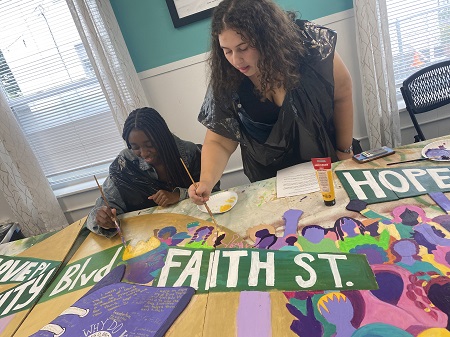Group Works to Build Peace Out of Despair in Boston

Kathryn Carley – Commonwealth News Service
While community activists in some of Boston’s south side neighborhoods have declared a state of emergency following a string of fatal shootings, one mother is working to help the grieving families left behind.
Chaplain Clementina Chery, president and CEO of the Louis D. Brown Peace Institute, named after her 15-year-old son who was fatally shot in Dorchester in 1993, said a long-term and sustainable public health approach is needed to end the violence.
“Right now, as a culture, we’re still investing in the aftermath,” Chery observed. “We’re still investing in prisons, police and prosecution.”
It is estimated for every one homicide victim, at least 10 surviving family members are affected by the trauma. So far this year, 37 people have been killed by homicide in Boston alone.
Chery noted the Louis D. Brown Peace Institute offers crucial support to families in the first 24 to 72 hours after a homicide, and provides them with a Survivors’ Burial and Resource Guide, along with tools needed to manage grief, which she said have not always been readily available.
“You know, you have a baby, you leave with a care package,” Chery pointed out. “But when your loved one was murdered back then, you’re just left empty-handed. You didn’t know what to do.”
Families are also supported through the police investigation and any court proceedings. Chery added the goal is to change the public’s response to homicide by changing the narratives surrounding homicide victims.
When Chery’s son Louis was killed, news reports speculated whether his murder was a gang or drug-related crime. But public opinion changed when reports showed he was, in fact, an honor student, killed walking to an anti-gang violence meeting.
Chery remembered help and resources soon poured in, making her question how other families of murder victims were being treated.
“I wanted to pay it forward, and I wanted to show if the city can respond to me, then they can respond to anybody whose child is murdered, regardless of the circumstances.”
And cities beyond Boston are responding, with police, district attorneys and community activists in places like Hartford, Philadelphia and San Francisco taking a cue from Chery’s decades of work to support homicide victims’ families and spread her son’s message that peace is possible.
